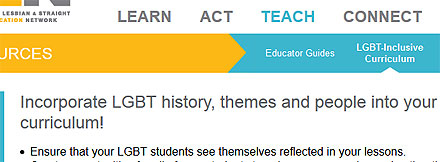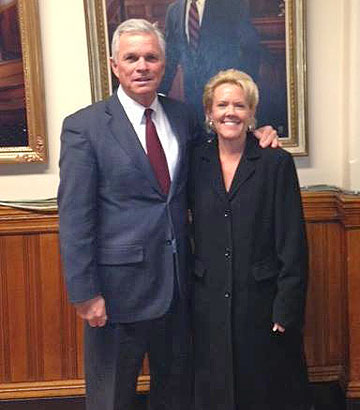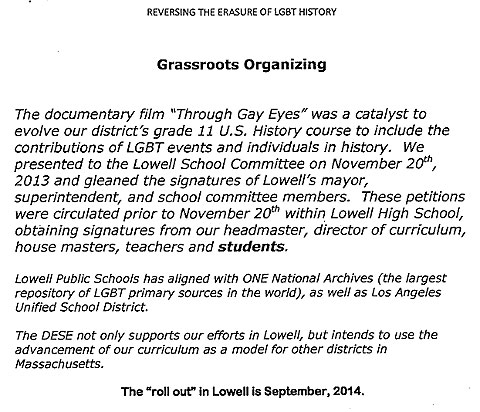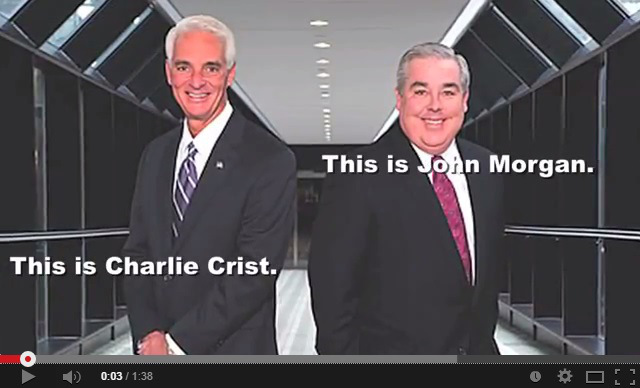Billionaire Bill Gates funds the media.
This is no surprise to me.
What did surprise me is the discovery that he meets with the media he funds (and others) regularly behind closed doors.
Yep.
Gates Briefs a Media He Pays For (And Then Some)
In February 2013, journalist Tom Paulson wrote a piece on Gates’ private meetings with the media he funds. Paulson was not invited.
Notice some of the names:
I (Paulson) wasn’t actually allowed behind the scenes at the Bill & Melinda Gates Foundation’s recent meeting in Seattle entitled “Strategic Media Partnerships.”
The Gates Foundation funds a lot of media – more than $25 million in media grants for 2012 (but still less than 1% of the budget).
I’m media but I wasn’t invited. I asked if I could come and report on it, but was told the meeting was off the record. Those attending included representatives from the New York Times, NPR, the Guardian, NBC, Seattle Times and a number of other news organizations, non-profit groups and foundations. Not all were grant recipients, or partners. Some just came to consult. [Emphasis added this paragraph.]
In August 2014, I wrote about the Gates-funded, Seattle Times blog, Education Lab.
Education Lab is trying to offer predominately light, benign stories arguably designed to divert public attention from the increasingly-evident documentation regarding the failure of education privatization.
In Seattle, Gates is paying for the reporting of “positive outcomes.”
What happens if the “outcomes” are not so “positive”?
Just don’t write about that.
And it is easy enough if the funded organization’s politics agree with those of Gates.
(The Gates grants website is clear that Gates actively seeks to pay those organizations that will agree with his agenda.)
In the comments section of my Gates-funded, Seattle Ed Lab post, University of Washington professor Wayne Au challenges one of the Gates-funded Ed Lab reporters on the “Gates agreement reporting” point. Here is an excerpt from Au’s comment:
What is striking to me is the thin political range of the Ed Lab. I see mainly “safe” stories about mainstream stuff almost no one would would question….
[ … ]
In many ways you are in a similar position to the other Gates funded organizations locally – like the League of Education Voters. They tell me all the time, “Gates funds us but they don’t tell us what to do.” And my response to them is always, “Gates doesn’t have to tell you what to do because your politics and agenda align with Gates. That’s WHY they fund you. If you changed your agenda, you’d lose your Gates money…” Gates doesn’t have to pull the strings. They just need to provide resources to the right policy actors. [Emphasis added.]
Au’s entire exchange with the Ed Lab reporter is worth a read.
A Gates-funded Common Core Debate (?)
Gates funds media willing to promote his agenda. Sometimes those reporting have no issues because they agree with Gates. In other cases, it seems that there might be some willful shaping of a story in order to slant the outcome towards “Gates favor-ability.”
Consider the September 9, 2014, Intelligence Squared debate on the Common Core State Standards (CCSS).
The debate is entitled, Embrace the Common Core.
No slant there.
If one scrolls to the bottom of the debate announcement page, one sees that Gates-funded NPR is a sponsor.
And as journalist Tom Paulson notes in his piece on Gates’ conferencing with the media, Bill is pushing for more “success stories”:
Well, as a journalist who covers global health and poverty and is expected to double-check and unpack the often carefully packaged messages put out by the Gates Foundation, I can tell you that quite a few people [attending the Gates media conference] – again, mostly ‘off the record’ – do kick. They’re not opposed to the overall goal, but many are concerned about the immense influence the philanthropy already has over the aid narrative.
One of the Gates Foundation’s working assumptions is that the aid narrative is a bummer, mostly bad news, and what we need is more ‘success stories.’ [Emphasis added.]
It is important to note that the “success stories” Gates wants are those in line with his agenda. When it comes to education, Gates loves CCSS, grading teachers using standardized test scores, instituting teacher pay-for-performance increasing class sizes, and an extending the school day.
Remember: True “Success” Is Gates-endorsed “Success”
Concerning evidence that contradicts the Gates agenda, Gates is willing to undercut a “success story.” Consider his February 2011 diminishing explanation in the Washington Post of the “success” of rising state test scores in light of flat NAEP scores:
Many education leaders would say that Gates’s criticism is unfounded. While NAEP scores are flat, scores on many state tests have risen over the past decade, to great fanfare. Test scores in both Maryland and Virginia have risen substantially in that span.
Gates contends that those gains are probably largely a result of new-test phenomenon: Test scores almost always rise under a new test, as students and teachers familiarize themselves with the test and the material it measures.
“Whenever you have a new test, people learn what’s in that test over the first three or four years,” he said. “The fact that doesn’t show up on NAEP at all is a bit damning.” [Emphasis added.]
Gates is quick to dismiss the rising state scores without also acknowledging the connection between flat NAEP scores and a sputtering, test-driven reform agenda. In other words, Bill did not say what was being “damned” was Bush’s test-driven, punitive, still-floundering No Child Left Behind (NCLB).
Indeed, in 2013, with an additional two years of privatizing reform under America’s belt, NAEP scores remained flat.
This is certainly not test-worshiping reform “success,” but don’t blame the corporate reform idol of the high-stakes test as the supposed end-all success marker.
Gates instead turns to “smaller classes” as the culprit:
Gates contends that the K-12 education industry has been steered for five decades by a misguided belief that the way to higher performance is smaller classes. Many states pursued class-size reduction initiatives in the 1990s. California, an example I covered as a reporter, reduced average class size from 30 to 20 in kindergarten through grade 3 in the mid-1990s, at a cost of over $1.5 billion a year.
And since test scores have not risen, it must be that smaller classes should yield to more *cost effective* larger classes, right?
And be sure to prod teachers on with merit pay. Gates just knows this will work:
Over the years, though, the research community has more or less confirmed that class-size reduction doesn’t yield significant performance gains. The most expensive education reform is among the least effective.
Gates proposes ending class-size reduction experiments, lifting caps on class size and offering good teachers financial incentives to teach more students.
“If you look at something like class sizes going from 22 to 27, and paying that teacher a third of the savings, and you make sure it’s the effective teachers you’re retaining,” he said, “by any measure, you’re raising the quality of education as you do that.” [Emphasis added.]
This is the same Gates who admitted in a September 2013 Harvard University interview that he wouldn’t know for “probably a decade” if his “education stuff” works.
Add to the above tidbit of uncertainty the established reality that Gates himself did not attend a test-driven-reform school with large class sizes, and neither do his children. And I’m sure he would consider himself as a “success.”
But that does not help the situation of “success shaping” of test-driven educational reform for the masses, does it?
No, no. Gates education reform “success” includes the next great idea in test-driven reform, CCSS.
Back to That Gates-funded, NPR-sponsored, CC Debate…
Gates-funded NPR is sponsoring the September 2014 “debate” event, Embracing the Common Core.
It should come as no surprise that for all practical purposes, the “debate” leans in favor of CCSS via the inclusion of Gates-funded American Enterprise Institute (AEI) “scholar” Rick Hess, who is to argue “against” CCSS.
The best Hess has shown so far in “opposing” CCSS is a lukewarm dissatisfactionwith it. He has, however, published a pro-CCSS book in November 2013 in which he examines how to “seamlessly integrate” CCSS “into accountability systems.”
Moreover, likely during the time that he was either writing or had already finished his pro-CCSS book, in February 2013, Hess interviewed CCSS “architect” Jason Zimba.
Here is how Hess chooses to present Zimba and CCSS. I consider Hess’ writing style as “loud plaid suit with pants too short.” Perhaps readers will understand why after experiencing the following:
You didn’t think the ferment around Common Core could keep building? Hah! Prepare for several more years of increasing wackiness. In the middle of it all is Jason Zimba, founding principal of Student Achievement Partners (SAP) and the man who is leading SAP after David Coleman went off to head up the College Board. SAP is a major player in Common Core implementation, especially with the aid of $18 million in support from the GE Foundation. Zimba was the lead writer on the Common Core mathematics standards. He earned his doctorate in mathematical physics from Berkeley, co-founded the Grow Network with Coleman, and previously taught physics and math at Bennington College. He’s a private dude who lives up in New England and has not been part of the Beltway policy conversation. I’d never met Zimba, until we had the chance to sit down last week.
Now, I think readers know that I’m of two minds when it comes to the Common Core. On the one hand, it does have the potential to bring coherence to the education space, shed light on who’s doing what, raise the bar for instructional materials and teacher prep, and so forth. On the other, there are about 5,000 ways the whole thing could go south or turn into a stifling bureaucratic monstrosity-and one rarely goes wrong when betting against our ability to do massive, complex edu-reforms well. Given all this, like many of you, I’m carefully watching how all this is playing out. [Emphasis added.]
Well. Safe to note that Hess is not a “dude” with serious reservations about CCSS. He’s just “watching”– and publishing a book in favor.
As far as the Gates-backed NPR-sponsored CCSS “debate” goes, right out of the starting gate, the established anti-CCSS stance belongs to only one of the four “debaters”– New York principal Carol Burris.
Gates must be pleased. After all, he really, really wants CCSS.

I must add that I continue to enjoy the irony of the Embrace the Common Core public opinion poll, which has remained steady at 11 percent in favor of “embracing” and 89 percent opposed out of over 42,600 responses.
Gentle New Orleans Charter Reporting, NPR-style
I have my own story of Gates-funded NPR and “success shaping,” this time in regard to charter school “success” in New Orleans.
The now-100-percent-charter, New Orleans Recovery School District (RSD) is no success. I have written extensively on the RSD fraud– on its under-regulation, its inflated school scores that don’t even raise its schools above the criteria for “failing school” according to the *also failing* Louisiana voucher program, of its shaped graduation rates and its cumbersome OneApp process. RSD is nine years old and hasn’t a single “A” school by the state’s own slippery grading criteria.
RSD is a failure.
So. In August 2014, I received an email from Claudio Sanchez of NPR. He was to be in New Orleans doing a piece on the RSD charters, and he wanted to meet to interview me. My first thought was of Gates’ funding of NPR, but I did call Sanchez, who sounded like he was familiar with my writings on the RSD illusion of charter “success.” We spoke on the phone for at least 20 minutes, during which time I summarized research on what amounts to an RSD-charter-success farce.
Sanchez and I were to meet on a Thursday, but his flight was delayed, so we rescheduled for a Friday, which he also canceled, he said, in favor of attending a union meeting at a bastion of charter mismanagement and failure, McDonough High School, a Steve Barr, Future Is Now charter failure that was supposed to have $35 million in renovations that never happened. Instead, charter manager Steve Barr pulled out two years later. Barr, who has zero attachment to the community where the school is located, said that the closure was a “facilities” decision.”
Why had the promised renovations not happened?
No explanation. Only excuses. However, if it is any consolation, in 2012, kids did get some new iPads.
And Oprah did try to sensationalize the depravity of McDonough on her short-lived series, Blackboard Wars.
Indeed, there is a story to McDonough, and Gates-funded NPR reporter Sanchez could have captured it.
Could have.
The school was closed in June 2014. All staff lost their jobs. Parents (among others) want the school to be returned to the Orleans Parish School Board (OPSB), which is willing to take the school back but– as seems to be true with any reversing of pro-privatizing reform– just “isn’t that easy.”
The short of it is, Sanchez knew about the issues surrounding McDonough High School because he attended a meeting there. And he had deliberately contacted me regarding supposed charter “success.”
Anyone who bothers to investigate New Orleans’ charters in the manner that a reporter should investigate surely would uncover numerous questionable leads.
What Sanchez published has all of the investigative depth of a salad plate. Major issues– like “not doing a great job on special ed”– brushed over. No depth. Statements such as, “There’s still substantial numbers of schools that struggle in New Orleans,” made without thorough examination. And no hint of the likes of McDonough High School and the problem of so-called school “management” that is completely disconnected from the community and can therefore easily dismiss an entire school as little more than a “supply and demand” issue.
After all, it’s “just business.”
However, I write not from the funding-approved perspective of what constitutes a “successful” report.
From such a sell-out perspective, surely the most important piece to Sanchez’s RSD-gone-fully-charter reporting is his benign ending:
SANCHEZ: It’s 8:20, and teachers scurry to their classrooms well aware that the entire country is watching. Claudio Sanchez, NPR News.
A shallow, soft landing to a story that had to potential of appearing too… real.
Success.
Education historian Diane Ravitch offers the following observation on Sanchez’s reporting:
Here is the trick by which radio and TV shows give the illusion of balance: first, they give the narrative, then they invite two or three people to make a critical comment. What they are selling is the narrative. The critics are easily brushed aside. At times like this, I remember that NPR gets funding from both Gates and the far-right Walton Family Foundation, which is devoted to privatizing public schools. [Emphasis added.]
Sanchez’s narrative: “I’ll raise questions, but I will not go deep. The farthest I will go is to note that America is watching. That’s it.”
Sanchez did note that his “story” is part of a “year-long series.”
If his opener is any indication, forget diving into any deep end. No floaties are even necessary for small children. Just a safe splash in a *benign* journalistic puddle.
Education Post: Funding-fortified for “Successful” Narrative Shaping
As I read Ravitch’s note on NPR’s funding, I remember the newly-created Education Post, which may or may not be Gates funded but which is Walton funded– and which also is attempting to “reshape the education conversation” into that which evidences public-awareness-anesthetizing, privatizing-reform “success.”
Those with the obviously-declared education privatization agenda have appointed themselves the “keepers of the education conversation.” They will publicize what they decide “works.” After all, they are above actually doing the educating, and since those of us doing the educating are “too busy,” we need for them to cement the narrative that what they pay for (test-driven reform, charters, vouchers) is what “works.” AsWashington Post’s Lyndsey Layton reports:
Bruce Reed, president of the Broad Foundation, said the idea for Education Post originated with his organization but that other philanthropic groups had recognized the need years ago. …
One of the goals of Education Post is to publicize what works in public education, Reed said.
“Administrators, school leaders and teachers have papers to grade, schools to run, and they don’t have time to get out and talk about this,” he said. “This is an effort to help spread information about what works both inside the field and outside.”
Education Post also will have a “rapid response” capacity to “knock down false narratives” and will focus on “hot spots” around the country where conflicts with national implications are playing out, [former Arne Duncan communications shaper] Cunningham said. [Emphasis added.]
Information control, my friends. And, of course, the controlled narrative will feed the idea of corporate reform “success”:
While there are myriad nonprofit organizations devoted to K-12 education,none are focused solely on communication, said Howard Wolfson, an adviser to Bloomberg Philanthropies.
“There hasn’t really been an organization dedicated to sharing the successes of education reform around the country,” Wolfson said. “You have local success, but it isn’t amplified elsewhere. And there is a lot of success. There is also an awful lot of misperception around what ed reform is, and there hasn’t been an organization . . . focused on correcting those misimpressions.” [Emphasis added.]
I’m sorry, but the “misimpression” of corporate reform as being punitive and destructive to the community-based school and the career teacher and friendly to a grossly-under-regulated privatization is beyond “impression”; it is a reality fostered not only by years of a failed NCLB but one that continues to be fostered by NCLB waiver-yanking US Secretary of Education Arne Duncan.
How funny that those keen on promoting the traditional public education “failure” narrative now want to shape it into a “success” designed to conceal their own failure.

Corporate reformers have begun seeking PR advice– which does include ditching the language of failure that is the foundation of the entire test-driven-reform empire.
(Cosmetic) change is hard.
Indeed, if there really were “a lot of success” surrounding privatizing reform, there would be no need for a $12 million-dollar, glorified blog to try to sell it.
I mean, who starts a blog and gets immediate coverage in the Washington Post??
Now, from that Washington Post coverage, here is some more comedy:
Former Los Angeles Mayor Antonio Villaraigosa — a one-time organizer for the teachers union who as mayor embraced charter schools, parent-trigger laws and other policies at odds with the unions — is leading the [Education Post] advisory board. [Emphasis added.]
Isn’t that great? Don’t you just trust the “success” narrative that this group will promote?
I know I do.
I’m *just too busy* in my classroom to exercise any critical thinking about Gates, Walton, Broad, Bloomberg, CCSS, charters, vouchers NAEP scores, merit pay, USDOE, NCLB, waiver-yanking, class size, and so many other edu-trashing issues.
Surely I should just hand it all over to those *much better funded* than I am and let them do my thinking for me.
You Can Lead a Schneider to a *Successful* Puddle…
Uhm, I’m thinking, not.





































